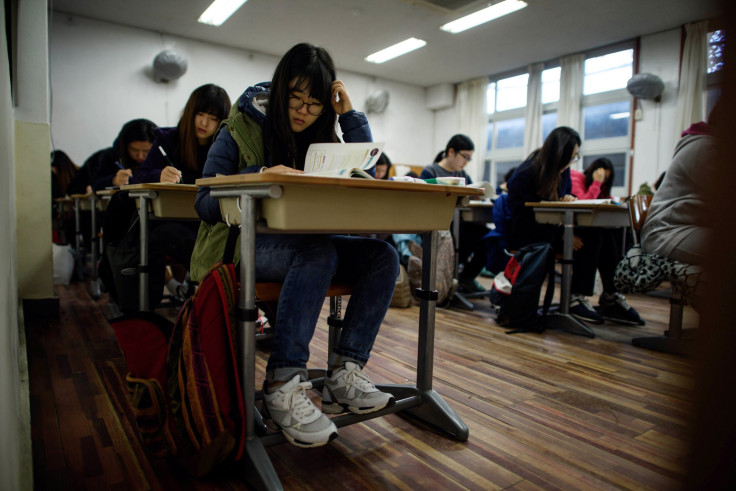Asia Exam Cheating: Concerns About SAT Security After More Scores Withheld In China

Concerns about cheating on the SAT college entrance exam, particularly by students in Asia, are leading to an unprecedented number of delayed scores, and raising questions about the integrity of the exam process.
In the latest incident, students in several international schools in China, who took the SAT in May, have had their scores withheld by the College Board, which owns and administers the tests, pending investigation, according to a report from the Wall Street Journal.
“I do not remember, over the last 20 years of giving the test, such a volume of delayed scores [or] rampant allegations of cheating,” Hamilton Gregg, an educational consultant who works with students in China told the paper.
Investigations of this sort are becoming almost routine in Asia. For four consecutive months ending earlier this year, the results of SAT exams administered in Asia have been withheld by the College Board. Also, in 2007 and 2013, exam scores of hundreds of candidates in South Korea were canceled after it was discovered that students had gained prior access to the exam questions.
In the past, students have cheated by obtaining test questions before sitting for the exam. As the same test is administered in different parts of the globe, with delays ranging from hours to days between exams, information about the contents of tests has been finding its way online.
Supervisors at Asian SAT site told the Journal that they had caught students with crib sheets, containing answers to exam questions that had been shared online. In addition, FairTest, an organization that advocates for test-optional college admissions policies, said it obtained an advance copy of the May 2 SAT exam a day before it was to be administered in the U.S.
The College Board has taken unprecedented steps in recent months to attempt to crack down on cheating, including requiring exam candidates to provide a verifiable photo ID and handwriting samples, alarmed doors, banning electronic devices and even employing fake test takers, according to Time.
The allegations of cheating in overseas SAT centers are of particular concern, as the number of foreign students taking the exam and applying to U.S. universities is surging.
There were more than 138,000 test registrations in East Asia and the Pacific in the 2013-2014 school year, up almost 75 percent from the 2008-2009 year. In addition, a record 886,052 overseas students enrolled in U.S. colleges and universities in 2013-2014, with the largest number – 274,439 -- being Chinese nationals, the Journal reported.
For the most part, however, investigations do not lead to cancelation of scores. Tom Ewing, director of external affairs at the Educational Testing Service, which administers the tests on behalf of the College Board, told the Washington Post: “Over the past year, with more than 4 million test takers around the globe, fewer than 5,000 scores have been canceled after thorough investigation.”
© Copyright IBTimes 2025. All rights reserved.






















